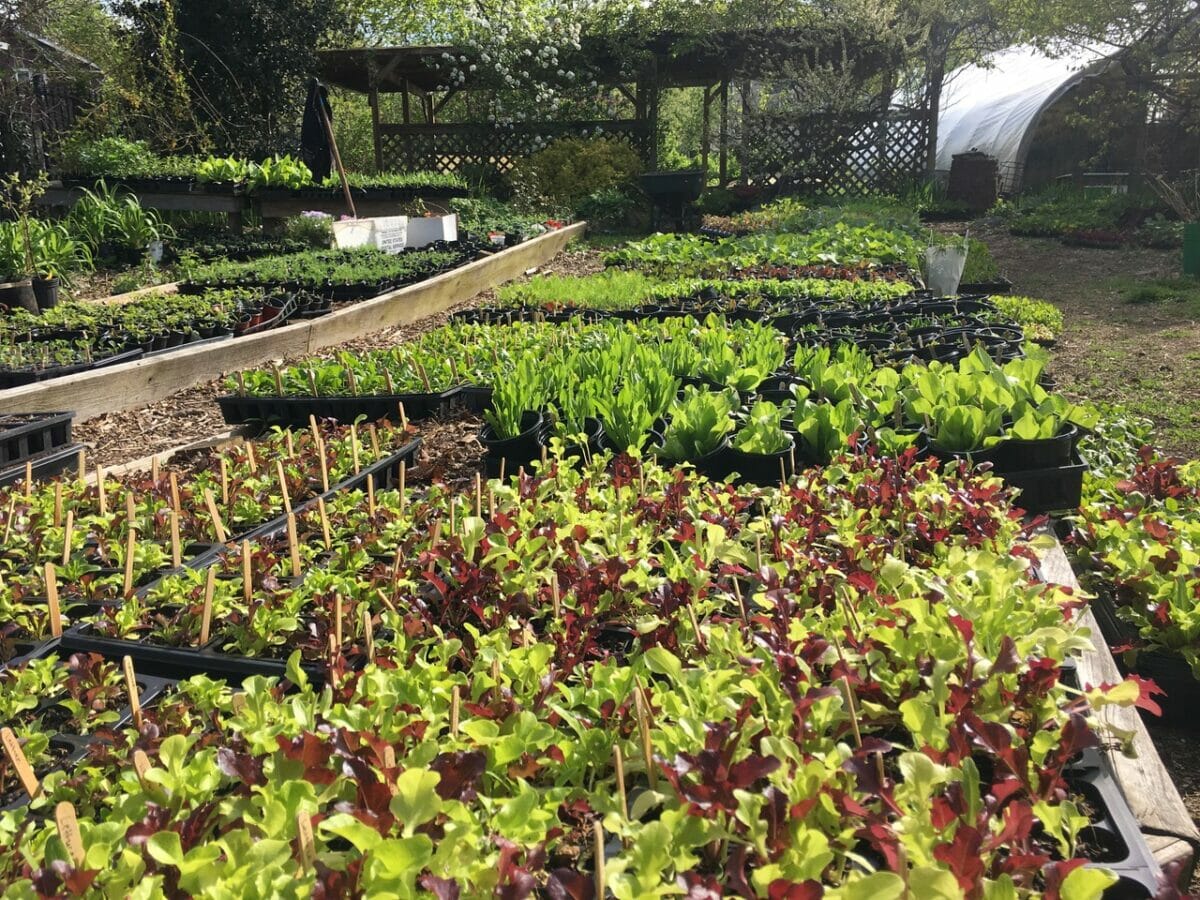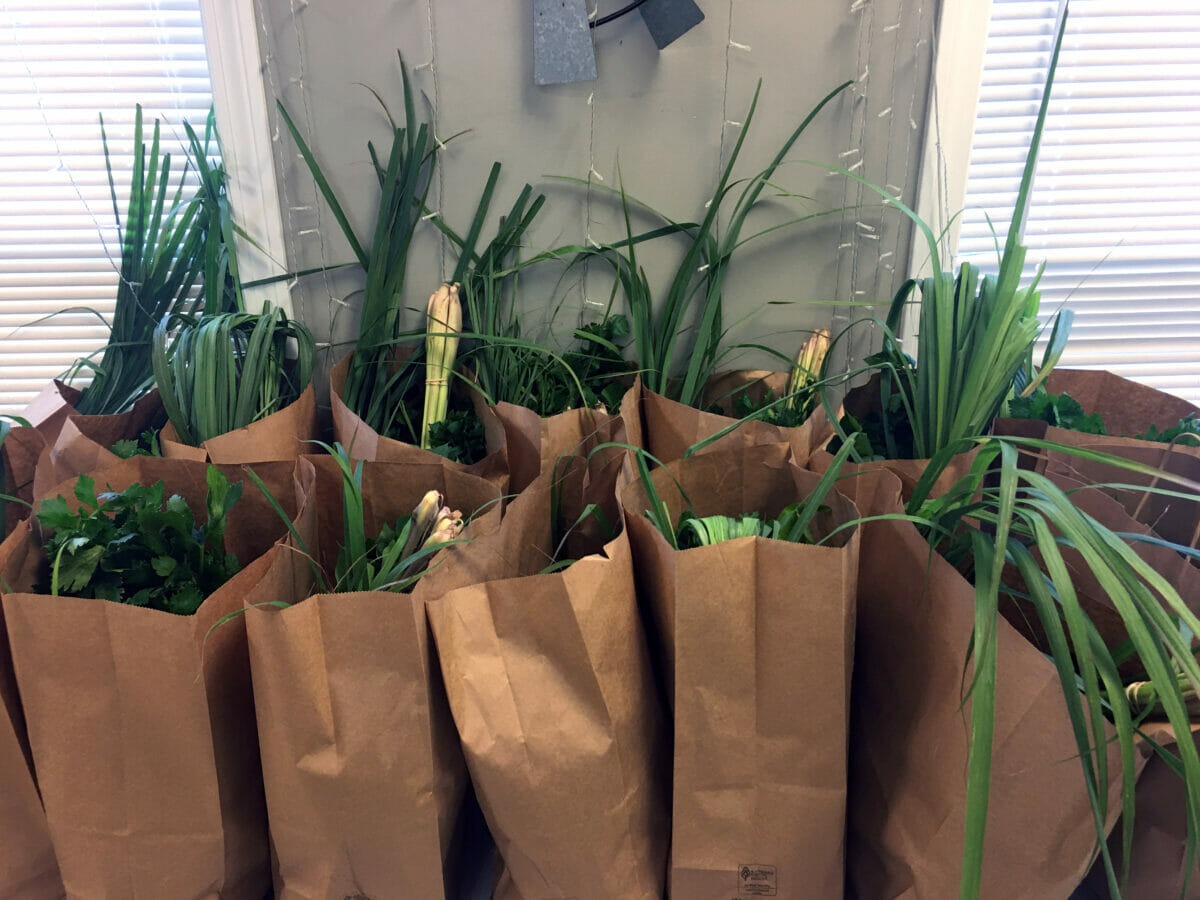Meet the Modern Farmer Helping Immigrant Farmers Sell Their Produce

[ad_1]
A magical interaction of meals, tradition and other people happens each Tuesday and Thursday on the Southside Neighborhood Land Belief (SCLT) constructing in Windfall, Rhode Island. Immigrant farmers from China talking Hmong mingle with West Africans talking pigeon English as they drop off candy potato greens, malabar spinach, bitter eggplant and different produce they develop on SCLT land.
Overseeing all of it is meals entry affiliate Jake Stanton, the pinnacle of the SCLT’s new aggregation and distribution heart, which works to offer the farmers alternatives to promote what they develop to wholesale markets. “It’s an actual attention-grabbing expertise to have entry to those greens and study them,” says Stanton.
Logistics are the oft-overlooked puzzle piece of constructing a greater meals system. And for the SCLT—which for some 40-odd years has labored to convey wholesome, domestically grown, culturally related and economically pleasant produce to the world—they’ve lengthy been one of many greatest obstacles in increasing the quantity of meals their community of city farms and gardens produce. Stanton fortunately took on the problem.
“He’s turned an exercise that was fairly informal and casual into one thing that basically conforms to regulation and operates effectively in order that income quantity and progress are doable,” says SCLT government director Margaret DeVos. “I can’t consider anybody I’d fairly have fascinated about the wants of our farmers and the way we get meals to individuals who want it.”

When Stanton began on the SCLT, the aggregation program was a loosely organized concept that concerned farmers dropping off produce on the again porch of the group’s outdated constructing. When the SCLT moved into a brand new state-of-the-art location earlier this yr, Stanton’s helped professionalize and increase the aggregation program.
Like many individuals, Stanton, who graduated from Brown College with levels in mathematical physics and Africana research in 2020, spent the early days of the pandemic at dwelling rising meals. After growing a ardour for gardening at his mother or father’s Michigan dwelling, the place he returned when Brown closed within the early days of COVID-19 outbreaks, he moved again to Windfall. Stanton started volunteering at SCLT’s Metropolis Farm, which teaches individuals about bio-intensive farming, and was ultimately employed to work on the group’s aggregation program.
This system permits farmers to concentrate on rising their meals as a substitute of additionally having to discover a marketplace for their meals and promote it themselves.
“We’re actually good at serving to individuals to search out land and the entry to develop meals, however these people didn’t actually have alternatives to promote wherever else than farmer’s markets, and this aggregation program steps in to assist farmers who develop on our land promote to people which are shopping for bigger quantities than what one farmer would have and provides them week-to-week consistency,” says Stanton.
SCLT began with the concept that serving to individuals to develop their very own meals in neighborhood gardens was a stable option to improve financial independence and company. The group has almost two dozen gardens all through Windfall and a few bigger suburban properties that folks can apply to farm on, with precedence given to those that dwell inside a mile of the situation. It’s one a part of the group’s purpose to deal with meals insecurity.

Stanton is at present working with 15 immigrant farmers to assist them not solely distribute their produce to neighborhood organizations, meals banks, well being clinics, cellular markets and senior residences but in addition to offer coaching on meals security, farming strategies and high quality management.
“We attempt to construct their skilled abilities and to be actually affected person,” says Stanton, recalling when somebody purchased him a zucchini the dimensions of a baseball bat. “We’ve to show people that we’d be capable to purchase that when after which we’ll inform you to cease, however should you’re promoting to a grocery retailer and also you try this, they’re not going to purchase from you ever once more.”
Now that the aggregation program is totally up and operating, Stanton hopes they’ll get much more environment friendly and be capable to do extra farmer coaching. “Individuals nonetheless don’t have sufficient meals to eat, they usually don’t have entry to jobs within the meals system which are nicely paying,” he says. “We’re centered on all of the locations we will go to make it doable so that folks in South Windfall actually do have management over their meals system.”
[ad_2]
Source link



